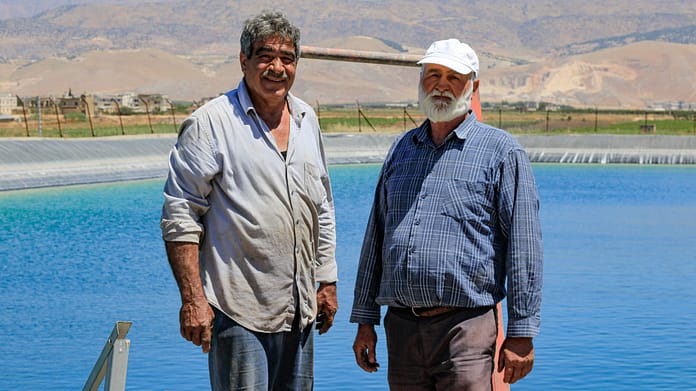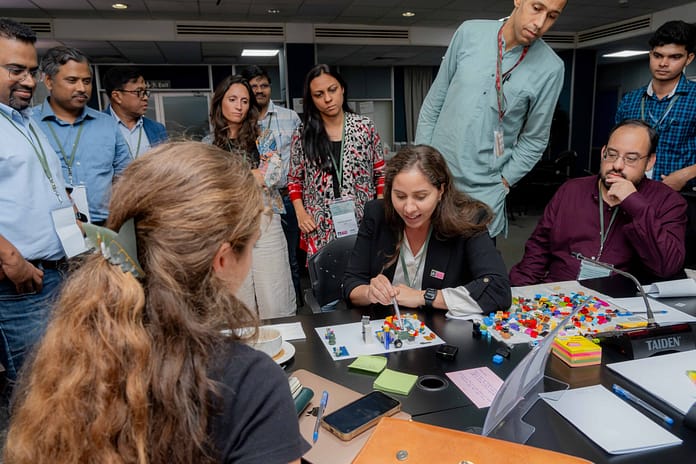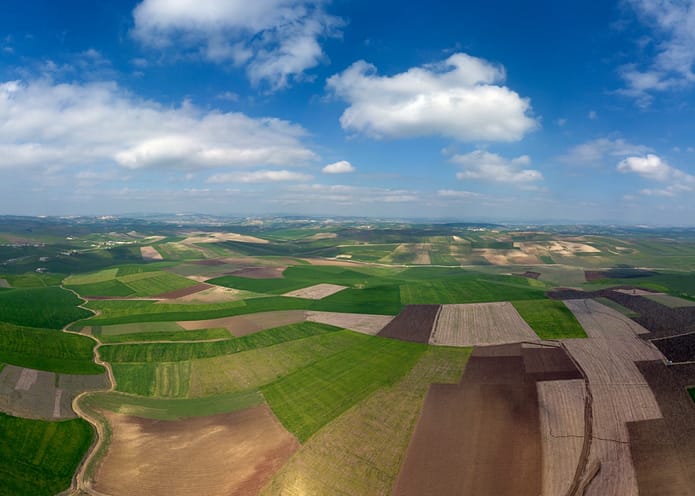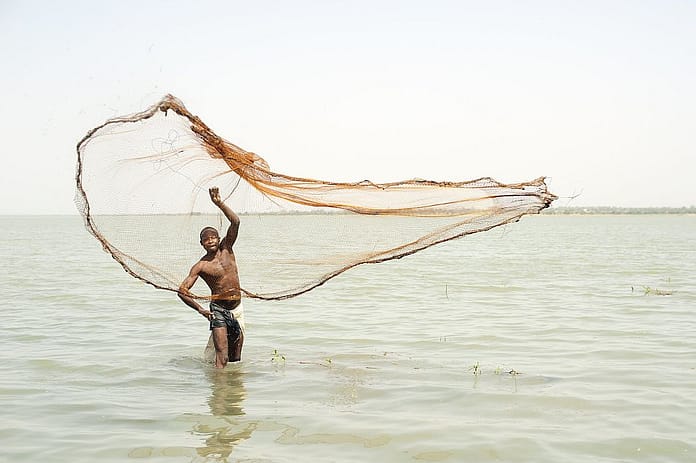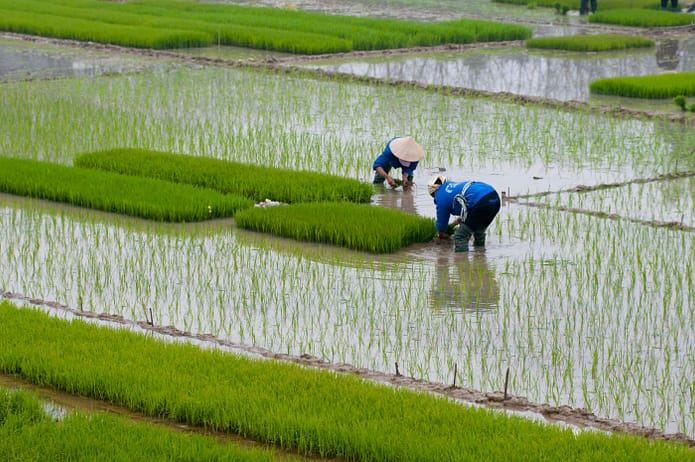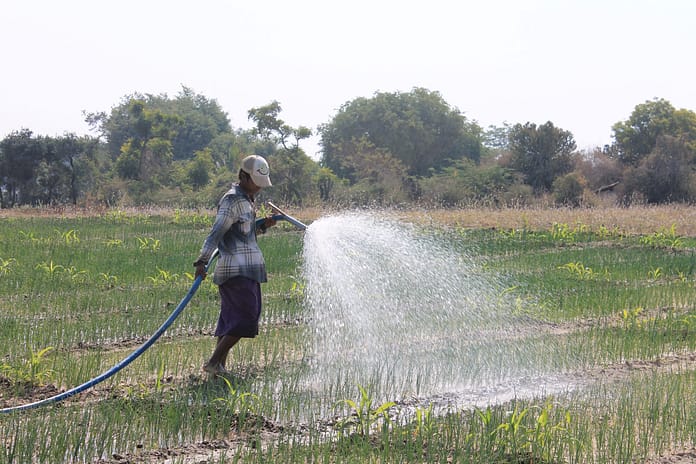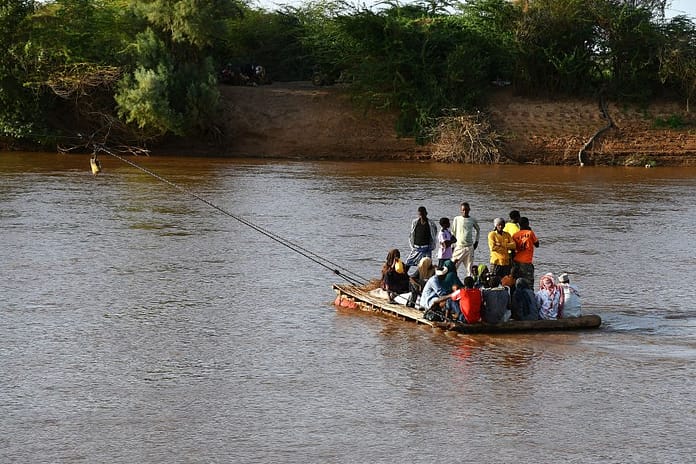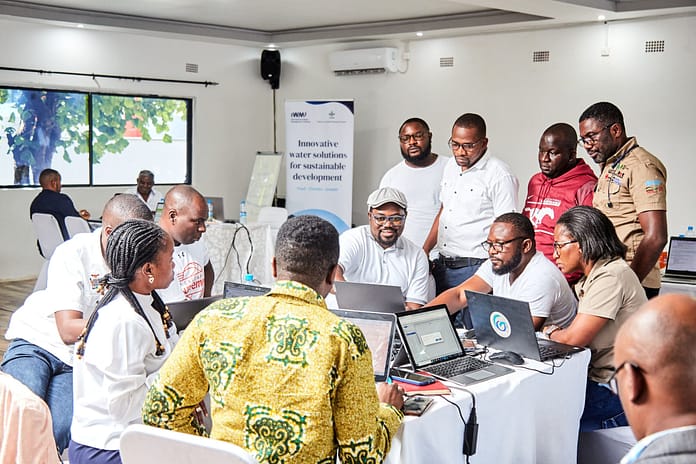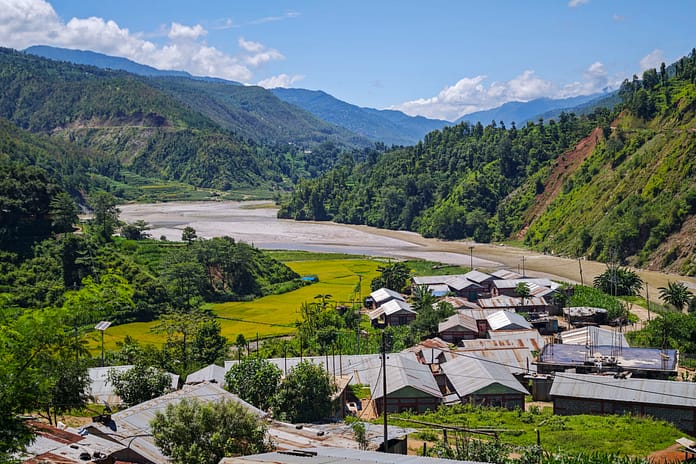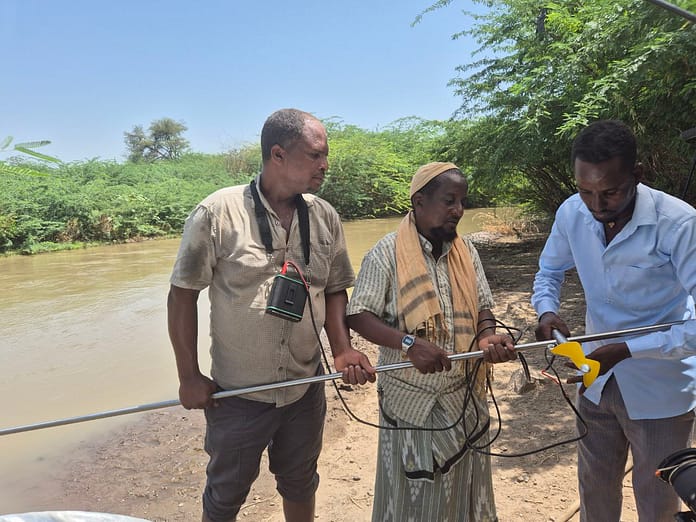By Maha Al-Zu’bi, Mirja Michalscheck, and Sarah Hulbert.

With a rapidly growing population and increasing pressure on agricultural systems, scaling impactful innovations is crucial for water and food security and sustainable development in Jordan. The International Water Management Institute and the World Food Programme Innovation Accelerator are focusing on water and resilience for refugees and host communities in Jordan.
Out of 12 qualified applications from Jordanian innovators, two were selected: AquaPoro, who have developed technology that harvests moisture from the air to produce clean water, and iPlant, who are developing GreenSpin, a vertical farming system that integrates natural sunlight and renewable energy sources into indoor and controlled environment agriculture (CEA).
AquaPoro‘s first product, WaHa, is an atmospheric water generating (AWG) machine designed to capture, concentrate, and condense moisture from the air, even in arid desert regions. Unlike other AWGs, WaHa is affordable and consumes low energy, providing clean, drinkable water to people everywhere, thus ensuring water security and independence. IWMI and WFP are supporting AquaPoro to enhance the development, testing and scaling of Mega-WaHa, which aims to produce at least 500 liters (0.5 m³) of water per day. The Mega-WaHa will be tested to support farmers with agricultural production without depleting existing water resources.
iPlant designed GreenSpin, a vertical farming unit technology that can be integrated into diverse environments and host communities, promoting sustainable and energy-efficient farming practices. GreenSpin is expected to use 90% less water compared to traditional agriculture, consumes 60% less energy than current vertical farming methods, and will increase crop production efficiency by 50-70% in limited spaces. GreenSpin will also address the challenges women face with traditional farming in Jordan by offering an urban agriculture system that is accessible and manageable within the constraints of urban living. Traditional farming demands significant physical labor and access to rural land, which can be challenging for many women. In contrast, GreenSpin is designed for fragile urban environments with limited space, making it a viable solution for urban agriculture.
Jordan’s six-month Accelerator program supports speeding up the deployment and impact of iPlant and AquaPoro technologies within refugee host communities in Jordan.
Supporting Innovation Scaling and Readiness of Innovators in Jordan
CGIAR has developed the Innovation Packages and Scaling Readiness (IPSR) methodology to ensure promising agricultural solutions reach their full potential. This agile, human-centered approach is transforming agricultural innovations, generating excitement among stakeholders and researchers.
During July 2024, IWMI conducted customized workshops on Innovation Packages and Scaling Readiness (IPSR), a methodology developed by CGIAR, for AquaPoro and iPlant. The workshops helped to enhance their innovations by identifying complementary products and services, such as training or financial plans, that would make the innovations more affordable and accessible at scale. Workshop participants jointly identified complementary elements in terms of scaling readiness as well as their use level. This will contribute to identifying potential linkages with businesses aiming to enter markets in contexts of Fragility, Conflict, and Migration. The innovators are also able to offer tailored and inclusive innovation packages, informed by the early product and service feedback received during the workshop. Farmers as well as representatives from the private sector, government agencies, non-governmental organizations, research institutions, the FAO, UNDP, and community-based organizations participated in the workshops.

The IPSR workshop was a great opportunity for iPlant to collaborate with various stakeholders. Together, we discussed piloting the GreenSpin system in different environments to find the best solutions for refugee-hosting communities in Jordan. By engaging with stakeholders, we are also addressing obstacles, supply chain issues and integrating policies to ensure the successful implementation and scalability of our sustainable farming practices.
Omar Bawab, Co-founder, iPlant

The IPSR workshop facilitated open dialogue with stakeholders from the communities that AquaPoro is seeking to serve through Mega-WaHa. The critical discussions, creative ideation, and constructive feedback enabled us to reflect on how best to refine our technology and deploy it at scale to have the highest impact and to address the unique needs of refugee host communities here in Jordan. We are incredibly grateful to IWMI and WFP for catalyzing what we all believe to be an important project for Jordan and its people.
Kyle Cordova, Founder and CEO, AquaPoro
Takeaways from the Workshops
1. Formation of Collaborative Relationships: Innovators began forming new relationships to jointly support the scaling of innovations in FCM areas such as Ramtha and Azraq. These collaborations are crucial for driving the adoption and impact of innovations.
2. Importance of Open and Respectful Dialogue: A key insight from the workshops is the critical role of open and respectful dialogue among a diverse range of actors. This inclusive communication allows everyone to benefit from various perspectives and complementary skill sets, essential for advancing resilient water systems in Jordan.
3. Enhanced Understanding of Barriers and Enablers: The discussions provided deeper insights into the specific barriers and enablers affecting the specific innovation uptake. This understanding is vital for developing effective strategies to overcome challenges and leverage opportunities.
4. Promotion of Resilient Water Systems: The workshops emphasized the importance of building resilient Water systems in FCM areas. Participants recognized that diverse and inclusive approaches are necessary to achieve sustainable and impactful outcomes.
5. Documentation and Knowledge Sharing: Detailed information and insights from the workshops are captured in the IPSR workshop reports, ensuring that knowledge is preserved and can be shared with a broader audience for continuous improvement and learning.
This work is carried out as part of the CGIAR Initiative on Fragility, Conflict, and Migration.



